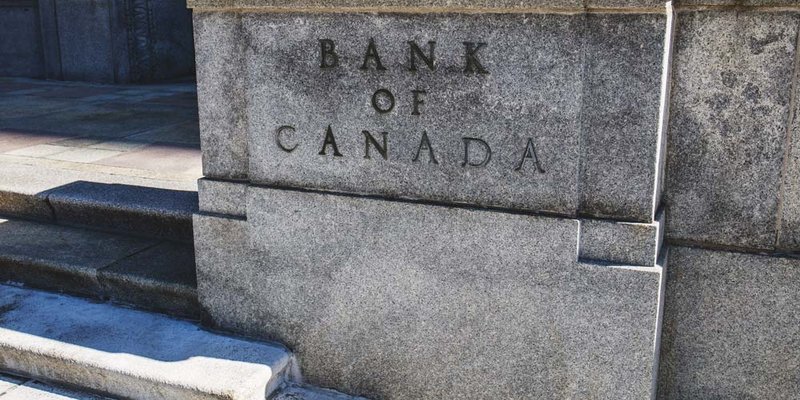
If you are not redirected within 30 seconds, please click here to continue.
Samedi: 10h – 16h HAE

If you are not redirected within 30 seconds, please click here to continue.
If you are not redirected within 30 seconds, please click here to continue.
BoC Decision Day: Inflation's "Persistence and Magnitude" Is Unknown, Bank Says

Table of Contents
In Brief
- Today's BoC Announcement: No change to rates
- Overnight rate: 0.25%
- Prime Rate: 2.45% (no change; see Prime Rate)
- Market Rate Forecast: 1.5 hikes within 12 months; four 0.25% hikes within 24 months
- On the Economy: "The Bank...revised up its 2022 forecast to 4 ½ percent and projects 3 ¼ percent growth in 2023."
- BoC's Headline Quote: "...The Canadian economy still has considerable excess capacity, and that the recovery continues to require extraordinary monetary policy support. We remain committed to holding the policy interest rate at the effective lower bound until...economic slack is absorbed...In the Bank’s July projection, this happens sometime in the second half of 2022."
- BoC's Full Statement: Click here
- Next Rate Meeting: September 8, 2021
The DOT's Take
The BoC has "increased confidence" in Canada's economy so it's cutting its government bond purchases by $1 billion a month. Those purchases have helped keep bond yields low, which keeps fixed mortgage rates lower than they'd otherwise be.
As for the steep climb in inflation, that's mostly due to “temporary factors and base year effects,” the Bank said. It's willing to gamble on delaying rate hikes because it thinks it can tame price increases quickly (with later rate hikes) if inflation stays too hot. Only time will tell if its gambit pans out.
The Bank also said, "The factors pushing up inflation are transitory, but their persistence and magnitude are uncertain..." Well, persistence and magnitude are everything. Everyone knows inflation won't last. All the Bank has to do is tighten monetary policy. But 3%+ core inflation that lasts more than a year, for example, would be rocket fuel for interest rates. The BoC is clearly hedging its words here.
For that reason, we believe the market is focusing too much on the "transitory" adjective and not enough on "persistence and magnitude." That understates rate risk because those latter two factors are what will drive rate increases.
Rates are based on a home value of $400,000
How to play it
The bond market is pricing in four rate hikes within 24 months with an eventual stopping point around 2.25% or so for the overnight rate. But that's not scaring borrowers. The percentage of Canadian mortgagors choosing a variable rate (about 1 in 3, according to Edge Analytics) is at a multi-quarter high.
Whether that choice will prove sound is unknown at this point. New strains of COVID could cause more lockdowns and extend low rates, or inflation could vastly overshoot expectations and force rates higher, faster. It's somewhat fruitless to speculate.
What's not fruitless is to manage risk exposure. If you don't want to gamble on interest costs, or can't afford to gamble, 5-year fixed rates near 2% remain a historical value. That's despite their 0.85 to 0.95 percentage-point premium to variable rates.
DOT tip: Steer clear of a 5-year fixed term if: (a) you do not foresee holding the mortgage a full five years, and (b) you're adamant about getting a mortgage from a lender with onerous prepayment penalties (like a Big 6 bank).
The takeaway: Variable rates will outperform if the BoC hikes slower than the bond market expects. Fixed rates will win—based on interest cost alone—if the opposite is true. Some argue the price for certainly (paying 85 to 95 basis points to lock in) is too high. But given the next leg of the rate cycle is almost certainly up, that "price" will drop in the next 12-36 months as the BoC hikes, thereby reducing the fixed-variable gap.
Get money-saving tips in your inbox.
Stay on top of personal finance tips from our money experts!








